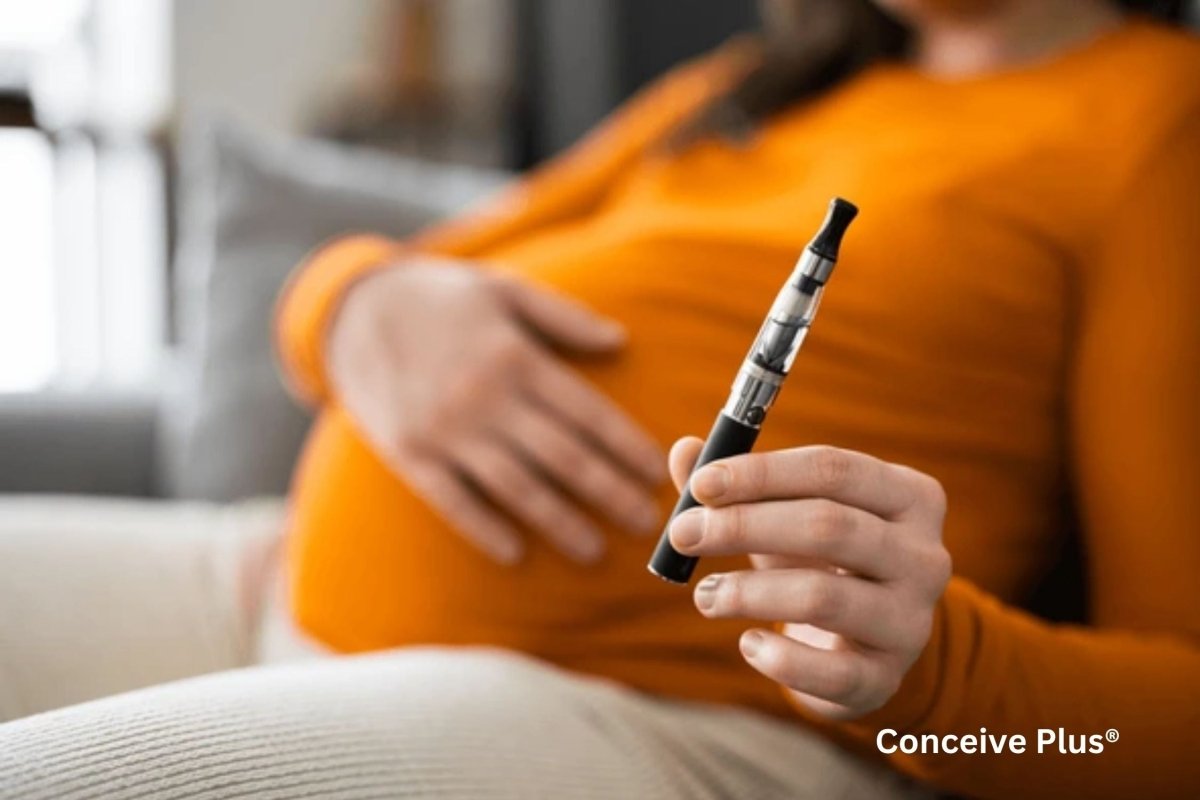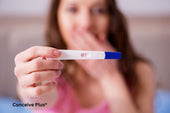I Vaped While Pregnant and My Baby Is Fine What You Need to Know

I vaped while pregnant and my baby is fine. At least, that’s what some individuals claim when discussing e-cigarette use during pregnancy. They often realize there's more to the story than that single statement. There's curiosity about how vaping might affect fertility, the baby, and even parents themselves. Some, especially those planning to conceive, seek thorough information so they can make the best choices for a healthy pregnancy. Others simply want to safeguard their unborn children from potential harm. This article explores questions like can I vape while pregnant, can u vape while pregnant, and whether e-cigarettes might cause complications. It also covers essential ingredients—often found in fertility products—that may support the body of women who want to get pregnant.
Why Fertility and Pregnancy Health Can’t Be Ignored
Individuals preparing to conceive often adjust their diets, exercise, and lifestyles. They strive to optimize everything. Yet, some wonder if vape devices are truly safer than cigarettes. They might ask, “can vaping cause a miscarriage in early pregnancy or can vaping cause miscarriage?” The data on e-cigarettes is still quite new compared to decades of research on traditional smoking. However, nicotine remains a likely concern for fertility and pregnancy outcomes [1].
Some people manage to reduce or quit completely and see notable improvements. Others find it more challenging. The main takeaway is that the body’s internal environment matters significantly when conceiving. Balanced hormones, steady nutrient levels, and lower stress are key. If you're wondering, how can I get energy during pregnancy, focusing on a nutrient-rich diet, proper hydration, and adequate rest can help sustain energy levels.
Top Tip: If someone is planning a pregnancy, it may help to consult a professional about removing nicotine and other substances from daily life.
Potential Risks and Early Pregnancy Loss
Many ask, “can you vape when pregnant or can you vape while pregnant?” This question arises because they worry about harming a developing embryo during those early stages. Some also wonder if nicotine could affect the placenta or hormonal functions enough to trigger miscarriage.
Proper blood flow is vital for fetal development, and nicotine does constrict blood vessels. That might limit essential nutrients from reaching the embryo. Does it raise the risk? Possibly, although studies are still ongoing. Most doctors recommend avoiding nicotine entirely, especially in the first trimester [2].
Top Tip: It might help for someone to track vaping habits in a small journal. Cutting back gradually can ease the transition to quitting.
Smoking vs. Vaping: Are They Really That Different?
Some individuals believe vaping is automatically safe because it doesn’t produce tar like regular cigarettes. But does anyone truly know, “does vaping affect pregnancy?” Possibly, yes. E-liquids often contain metals, flavorings, and other chemicals. Even if labeled “low nicotine,” no one can be totally sure how small amounts might influence the placenta or fetus.
When someone asks about using an e cigarette while pregnant, doctors usually warn that while e-cigarettes have fewer visible toxins than traditional cigarettes, they still deliver nicotine. That nicotine can reach the baby’s developing organs in unknown ways. Research on this remains incomplete [3].
Looking at Nicotine in Pregnancy
Many wonder if an occasional vape session is okay. They also want to know about the effects of vaping while pregnant. But nicotine may cross the placenta, which might negatively affect the baby’s growth. An electronic cigarette pregnancy device doesn’t always list every ingredient. There could be flavoring chemicals or metals not mentioned on the label.
So, is it worth allowing those unknown substances to contact the developing fetus? Many health experts say probably not. Quitting or never starting tends to be the safer route.
Top Tip: Anyone struggling to quit can consider seeking out medical guidance on nicotine-free methods. This may protect mental well-being too.
How Baby Could Be Affected, Both Now and Later
Some expectant parents notice no immediate issues. They assume everything is fine. But certain consequences might appear later on. People frequently ask if “I vaped my whole pregnancy” really leads to zero harm. It’s unwise to rely on a single anecdote. Problems aren’t always evident at birth; they can surface during childhood or adolescence. Long-term data on vaping remains incomplete [4].
The womb is the baby’s environment for months. Even tiny exposures to concerning chemicals could interfere with normal organ development or overall growth.
Top Tip: Maintaining a healthy weight range before and during pregnancy can also be helpful, as extremes in weight might affect fertility and birth outcomes.
The “I Vaped While Pregnant and My Baby Is Fine” Argument
The phrase I vaped while pregnant and my baby is fine appears in various personal stories. Some individuals see no obvious issues. Yet that singular experience does not guarantee the same for everyone. Each pregnancy can respond differently to nicotine, chemicals, or changing hormones. One person might have no complications, another may face serious challenges. Experts often state that staying nicotine-free is a better bet for the baby’s well-being [5].
Top Tip: For those still using nicotine, it might help to seek healthcare guidance on safe quitting aids.
Is It Bad? Is It Safe? Contrasting Views on Vaping
Some directly ask, “is it bad to vape while pregnant?” or “is it safe to vape while pregnant?” Medical professionals generally agree there’s no established safe level of nicotine for pregnant individuals. Low birth weight, preterm labor, and placental complications are connected to nicotine [6]. Anyone wanting the best environment for the fetus might want to eliminate e-cigarettes altogether.
Top Tip: Incorporating vitamins or supplements containing calcium and magnesium could help the body cope with removing nicotine.
“Is Vaping Bad for Pregnancy” or “Is Vaping While Pregnant Bad)”: The Placenta Factor
The placenta supplies oxygen and nutrients to the developing baby. Nicotine can constrict blood vessels, which reduces blood flow. So, “is vaping bad for pregnancy?” or “is vaping while pregnant bad?” Likely yes. With weaker blood flow, fetal growth might be hindered. This doesn’t guarantee every baby will have a serious issue, but the possibility remains. Every fetus deserves the best conditions possible [7].
Top Tip: Staying hydrated can help flush toxins from the body. Drinking enough water supports overall health, especially when making lifestyle changes.
The Personal Stories of Mothers Who Vaped During Pregnancy
Plenty of mothers who vaped during pregnancy share stories of babies born healthy. Still, many others might not share the same luck. E-liquids may hold metals or additives. Nicotine isn’t the only harmful agent. If a person’s body reacts poorly, unanticipated problems can occur.
Top Tip: Folic acid or Myo-Inositol are known to assist with egg quality and hormonal balance, which can be beneficial for fertility.
The Link Between Nicotine and Pregnancy
Talk of nicotine and pregnancy usually revolves around its effect on oxygen supply to the fetus. Nicotine can slow fetal growth or affect brain development [8]. Health providers prefer a completely nicotine-free environment for pregnant individuals. Patches or gum still contain nicotine, so those methods require a doctor’s recommendation.
Top Tip: Stepping outside for fresh air or trying light stretching might help curb cravings whenever they arise.
Cutting Down on Nicotine During Pregnancy
Cutting down on nicotine during pregnancy may seem difficult, particularly for longtime smokers. Yet, even small reductions can ease the load on the mother’s system. However, continuing nicotine while pregnant in any capacity might lead to issues like low birth weight [9]. Stopping sooner often yields better outcomes.
Top Tip: Writing down specific reasons to quit and placing them in visible spots (like on a mirror) can help maintain motivation.
Getting Ready for Parenthood: Vaping and Pregnancy
When couples plan for a baby, they frequently look into vaping and pregnancy or question how vaping during pregnancy may affect the child. Some worry about vaping in early pregnancy without knowing. That can bring guilt or stress. But it’s never too late to change course. Even if someone continues vaping while pregnant, quitting can still benefit the fetus.
Certain individuals switch to vaping zero nicotine while pregnant. They think it’s safer. It may be a step forward, but there’s no guarantee it’s completely harmless. Some zero-nicotine e-liquids might contain other chemicals. Ultimately, what happens if you vape while pregnant can remain unknown because research is ongoing. It might help to remove the risk by eliminating e-cigarettes entirely [10].
Top Tip: In place of vaping, a brisk walk or a healthy snack can divert cravings. Keeping hands and mind busy may lower the desire for nicotine.
Ingredients That May Support Fertility
- Folic Acid: May help lower specific birth defect risks and aid cell formation.
- Myo-Inositol & D-Chiro Inositol: Can aid hormone regulation, helpful for PCOS.
- CoQ10: Offers antioxidant support and cellular energy.
- Ginger Extract: Mildly soothes the digestive system and may decrease inflammation.
- Vitamin C & E: Shield reproductive cells from oxidative damage.
- Vitamin D: Assists hormone stability and bone strength.
- B Vitamins: Aid energy production and can help balance the nervous system.
- Calcium & Magnesium: Important for muscle function and other bodily processes.
- Iron: Vital for oxygen transport, crucial in pregnancy.
- Zinc & Selenium: Can help sperm health and DNA strength.
- L-Arginine: Improves circulation to reproductive organs.
- Taurine: May support cellular health and stress reduction.
- Maca & Ginseng: Have been linked to enhanced libido and sperm health in some studies.
- Ashwagandha: Helps the body handle stress and maintain hormonal equilibrium.
- DHA/Fish Oil: Known to benefit the fetus’s brain and eye growth.
Certain Conceive Plus formulas combine many of these. Some individuals focus on nutrient-rich meals, too. Either way, it’s a good idea to verify labels and consult health providers, especially for any existing conditions.
The Bottom Line
Some pregnant individuals say, I vaped while pregnant and my baby is fine, but that outcome might not happen for everyone. The hidden chemicals and nicotine in e-cigarette liquids can jeopardize both fertility and fetal well-being. Those who have just discovered a pregnancy, or are planning one, may consider stopping nicotine to give the baby a healthier environment. Turning to fertility-friendly nutrients—like the ones found in Conceive Plus products—could also offer extra support. By quitting nicotine, adding helpful vitamins or minerals, and staying under healthcare guidance, expectant parents can boost their odds of a smoother pregnancy and a healthy baby.
FAQs
Could smoking be more dangerous than vaping?
Both methods can involve nicotine and chemicals. Cigarette smoke has tar and extra toxins, whereas vaping may still hold metals or flavorings. It’s often recommended to avoid either option.
Will quitting suddenly harm the baby?
In general, abrupt nicotine cessation doesn’t cause fetal harm. It can actually enhance oxygen flow to the fetus sooner.
What if the e-liquid is labeled zero nicotine?
There may still be additives or trace nicotine. Labels are not always fully accurate or detailed.
Can fertility supplements help with conception?
Yes, vitamins and minerals can support hormone balance and reproductive function. Substances like folic acid or CoQ10 are known to be beneficial.
What happens if someone used a vape pen before learning they were pregnant?
It’s best to stop once pregnancy is confirmed and focus on balanced nutrition. Medical advice can help ensure a more positive outcome.
Citations
- McDonnell, B. P., Dicker, P., & Regan, C. L. (2020). Electronic cigarettes and obstetric outcomes: a prospective observational study. BJOG : an international journal of obstetrics and gynaecology. Available at: https://pubmed.ncbi.nlm.nih.gov/32036628/
- National Center for Chronic Disease Prevention and Health Promotion (US) Office on Smoking and Health. The Health Consequences of Smoking—50 Years of Progress: A Report of the Surgeon General. Atlanta (GA): Centers for Disease Control and Prevention (US); 2014.. Available at: https://www.ncbi.nlm.nih.gov/books/NBK179276/
- England, L. J., Bunnell, R. E., Pechacek, T. F., Tong, V. T., & McAfee, T. A. (2015). Nicotine and the Developing Human: A Neglected Element in the Electronic Cigarette Debate. American journal of preventive medicine. Available at: https://pubmed.ncbi.nlm.nih.gov/25794473/
- Spindel, E. R., & McEvoy, C. T. (2016). The Role of Nicotine in the Effects of Maternal Smoking during Pregnancy on Lung Development and Childhood Respiratory Disease. Implications for Dangers of E-Cigarettes. American journal of respiratory and critical care medicine. Available at: https://pubmed.ncbi.nlm.nih.gov/26756937/
- Rasmussen, K. M., Yaktine, A. L., & Institute of Medicine (US) and National Research Council (US) Committee to Reexamine IOM Pregnancy Weight Guidelines (Eds.). (2009). Weight Gain During Pregnancy: Reexamining the Guidelines. National Academies Press (US). Available at: https://pubmed.ncbi.nlm.nih.gov/20669500/
- Cnattingius S. (2004). The epidemiology of smoking during pregnancy: smoking prevalence, maternal characteristics, and pregnancy outcomes. Nicotine & tobacco research : official journal of the Society for Research on Nicotine and Tobacco. Available at: https://pubmed.ncbi.nlm.nih.gov/15203816/
- Jauniaux, E., & Burton, G. J. (2007). Morphological and biological effects of maternal exposure to tobacco smoke on the feto-placental unit. Early human development. Available at: https://pubmed.ncbi.nlm.nih.gov/17900829/
- Slotkin T. A. (2008). If nicotine is a developmental neurotoxicant in animal studies, dare we recommend nicotine replacement therapy in pregnant women and adolescents?. Neurotoxicology and teratology. Available at: https://pubmed.ncbi.nlm.nih.gov/18380035/
- Rogers J. M. (2008). Tobacco and pregnancy: overview of exposures and effects. Birth defects research. Part C, Embryo today : reviews. Available at: https://pubmed.ncbi.nlm.nih.gov/18383133/
- Hajek, P., Etter, J. F., Benowitz, N., Eissenberg, T., & McRobbie, H. (2014). Electronic cigarettes: review of use, content, safety, effects on smokers and potential for harm and benefit. Addiction (Abingdon, England). Available at: https://pubmed.ncbi.nlm.nih.gov/25078252/



















